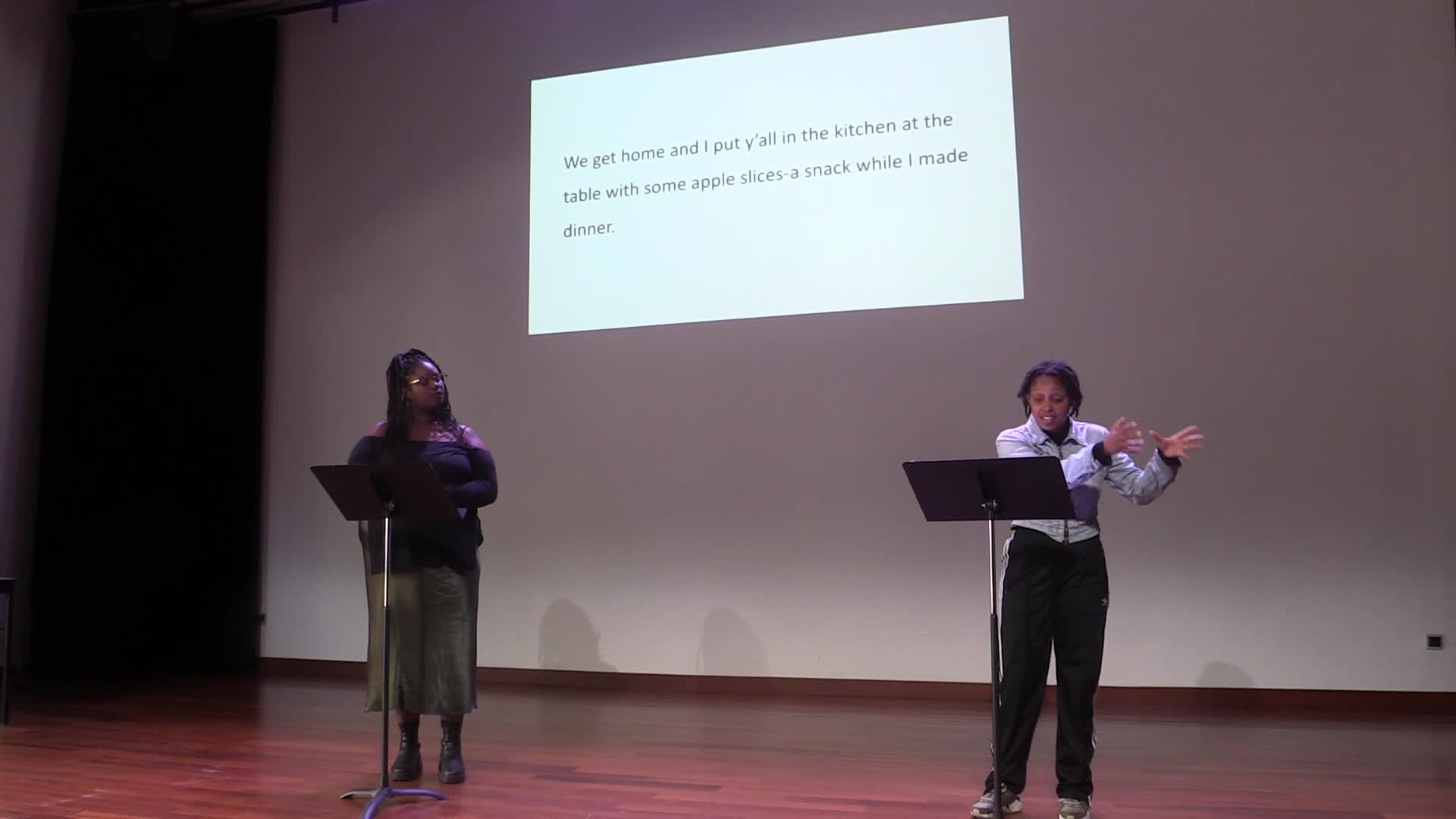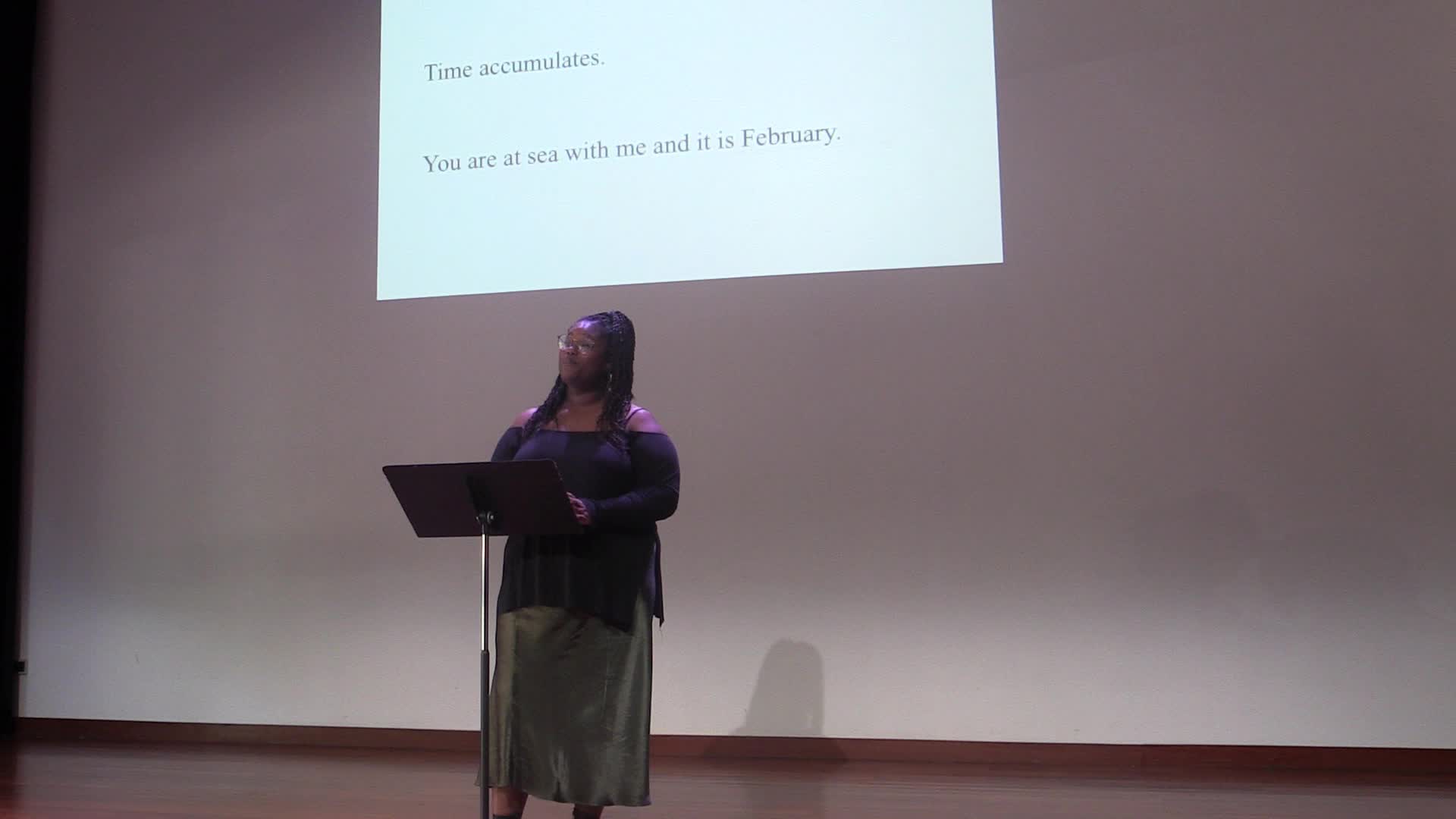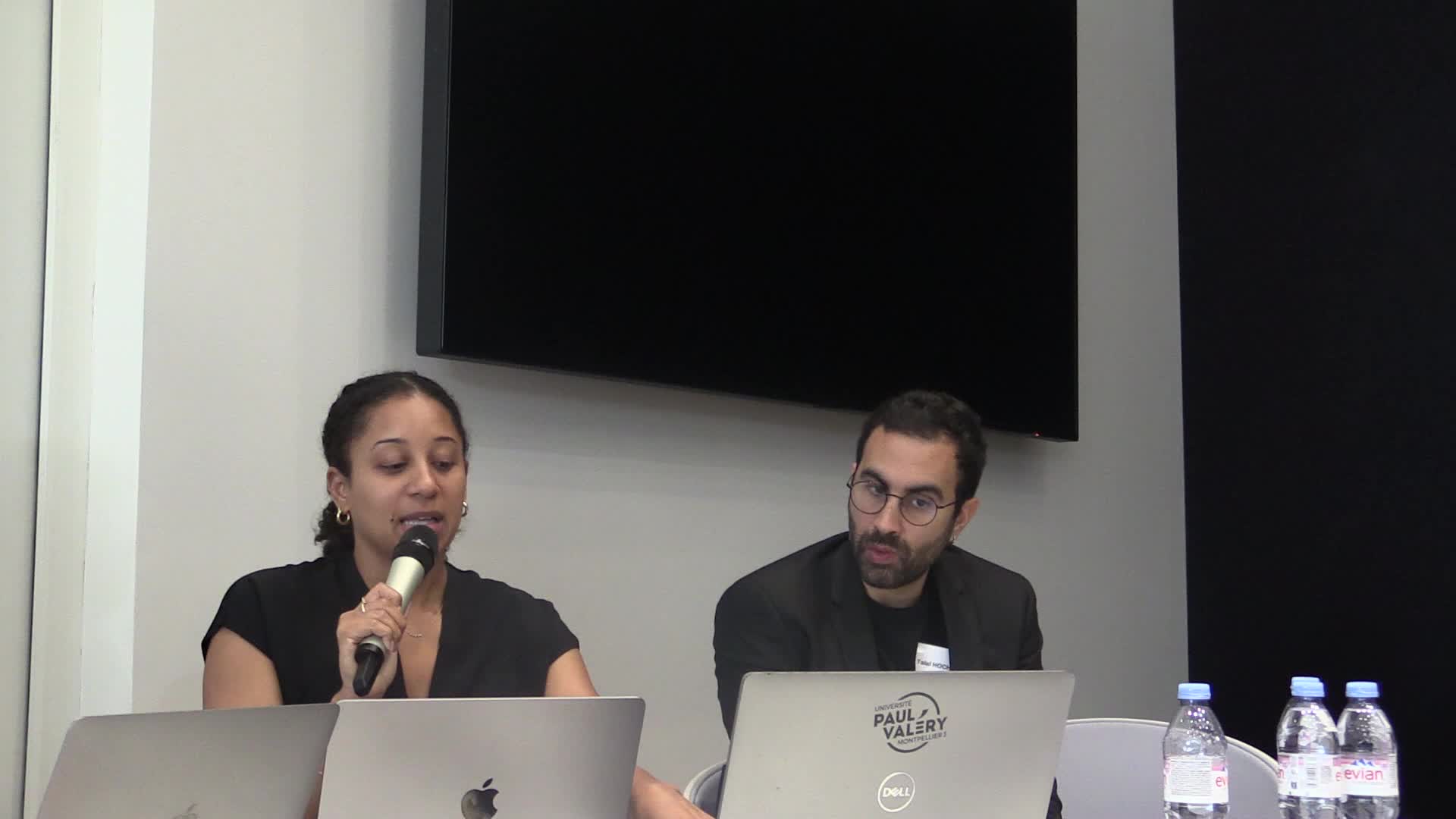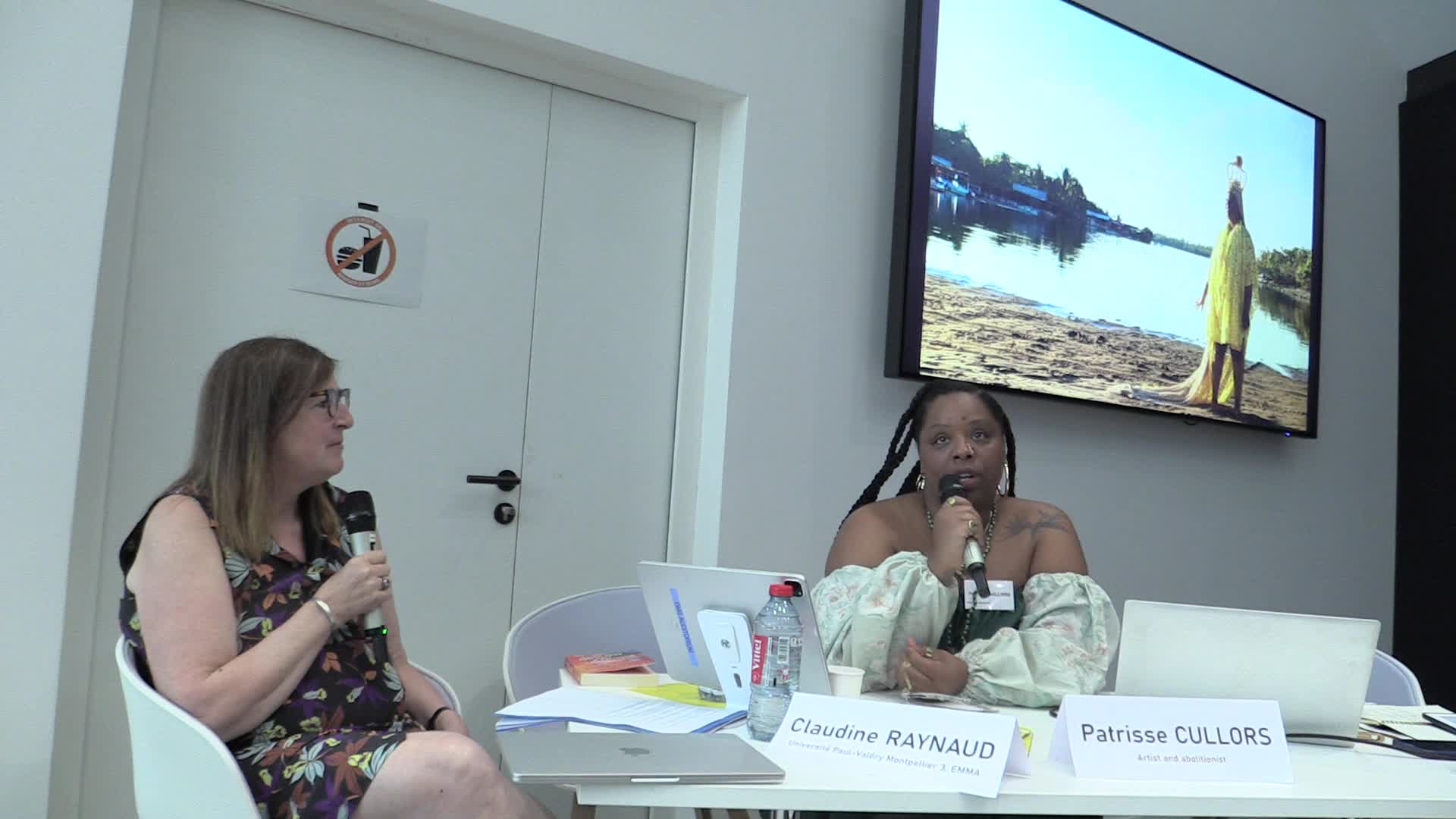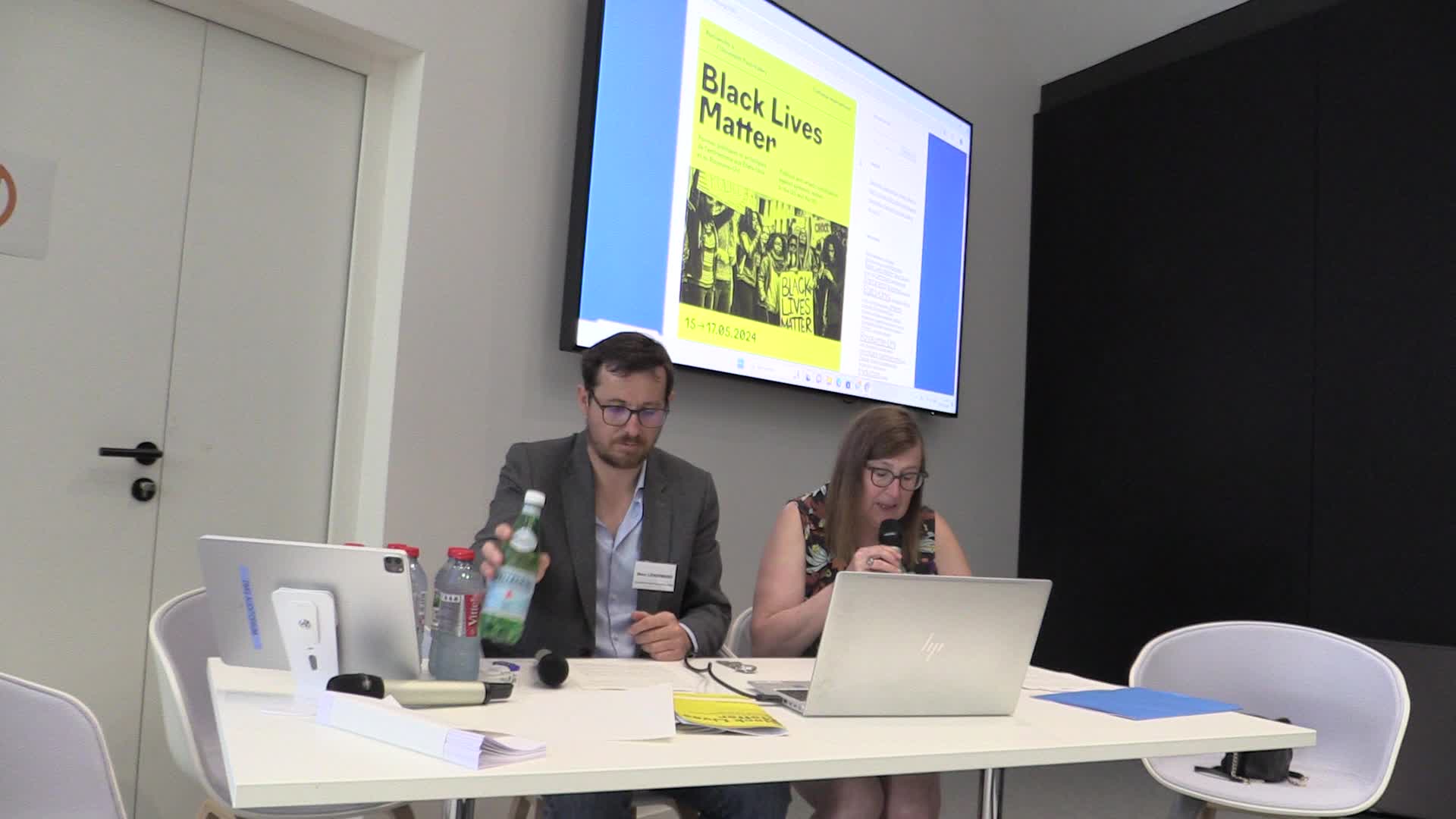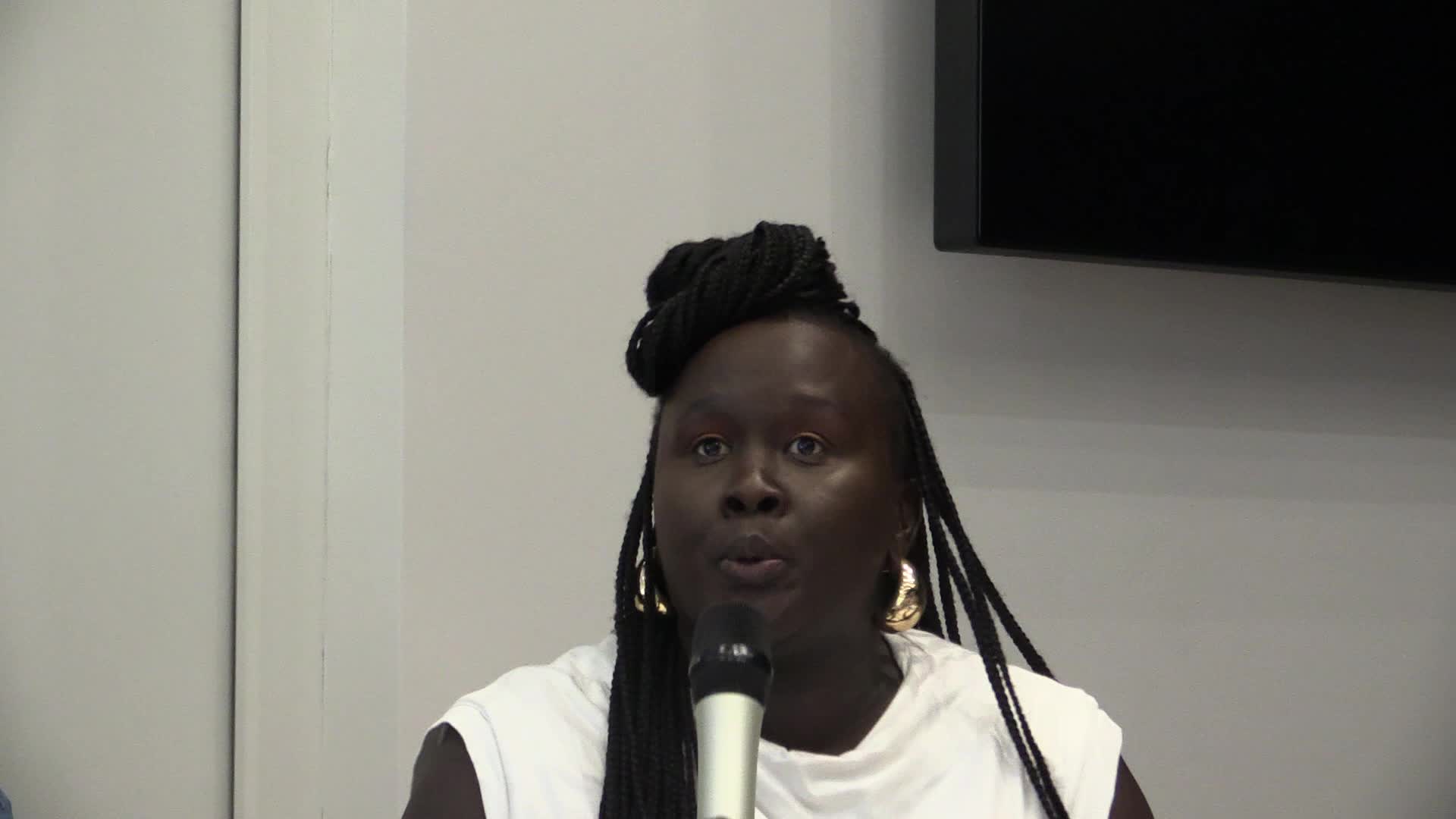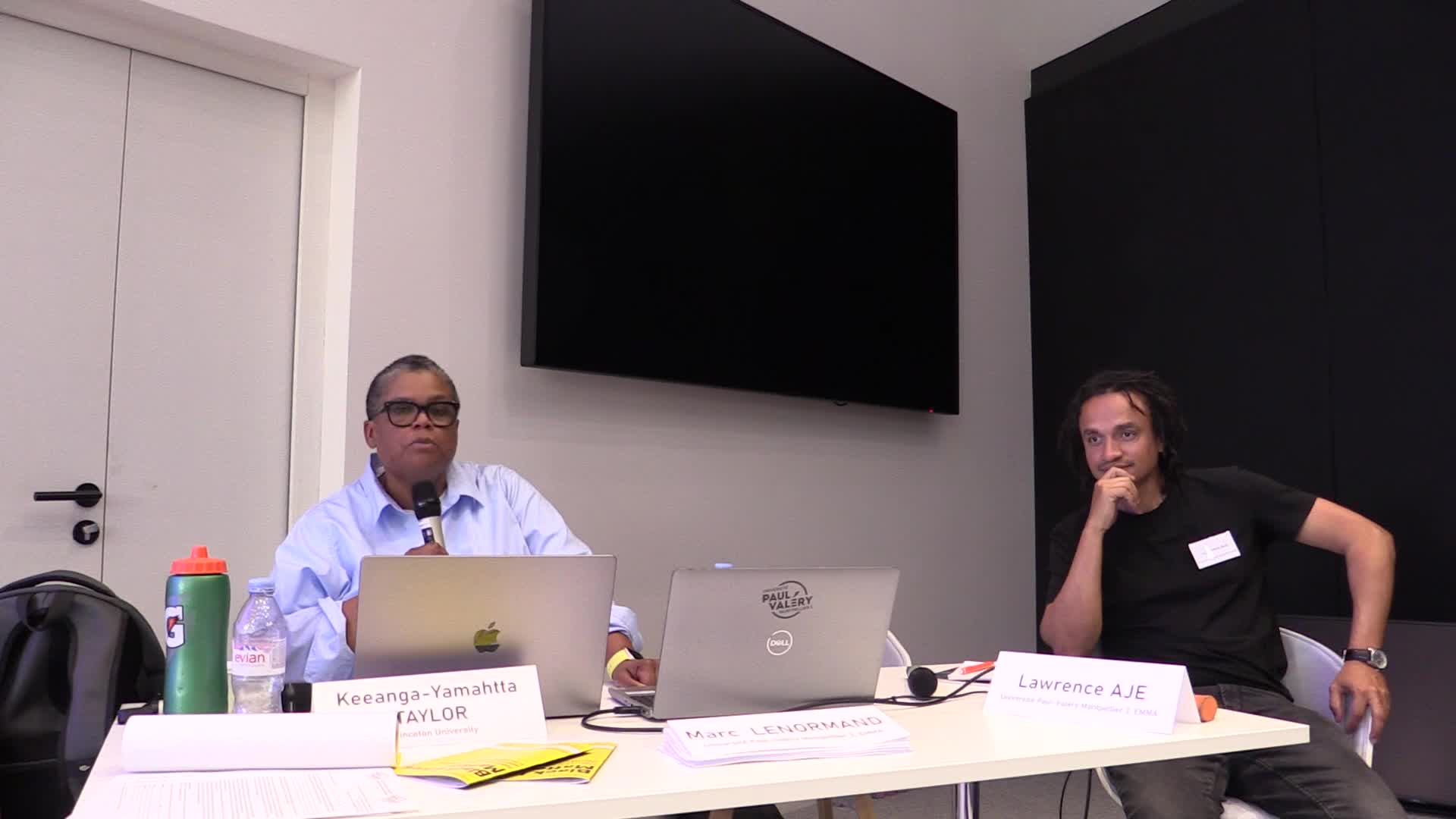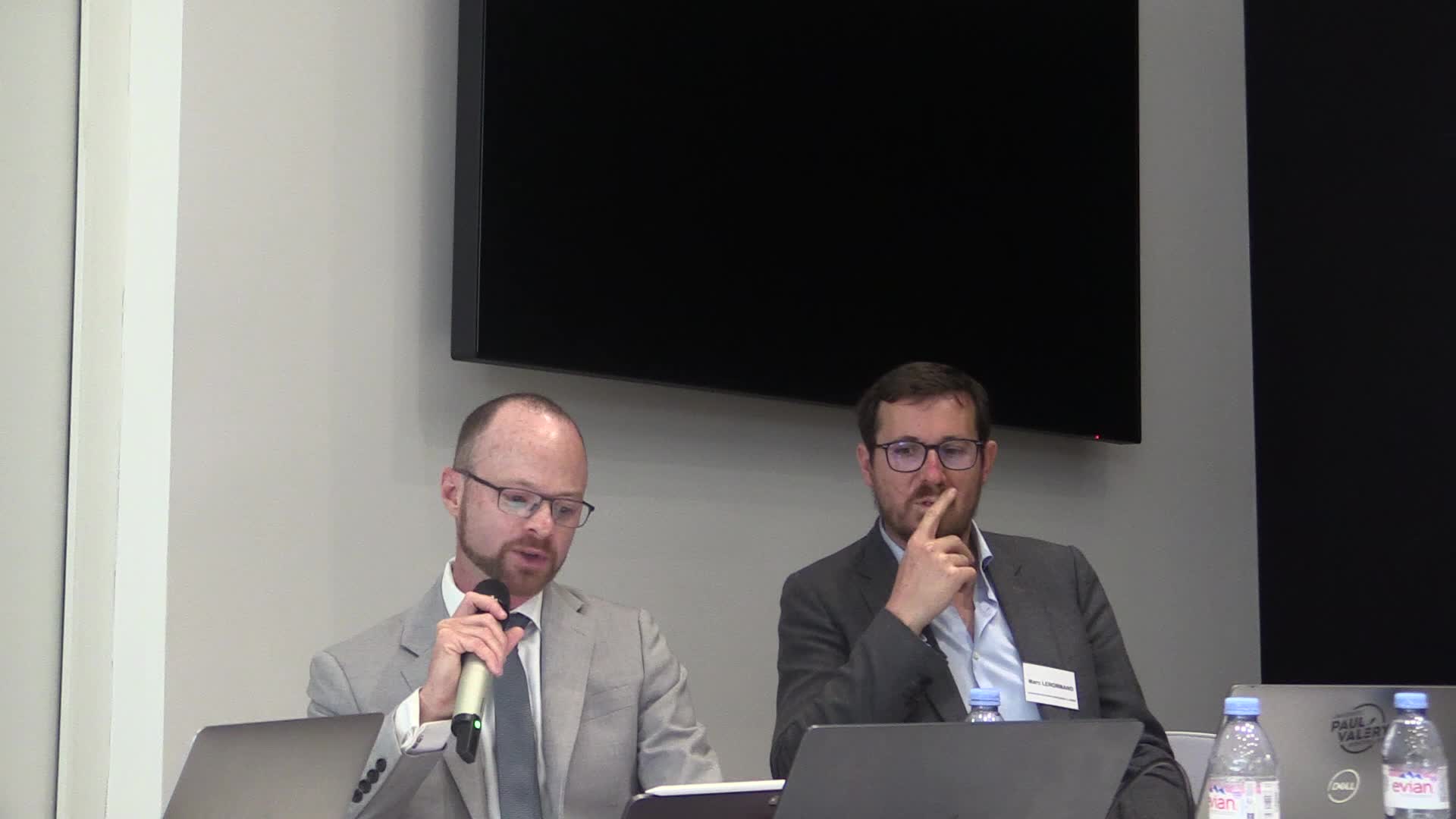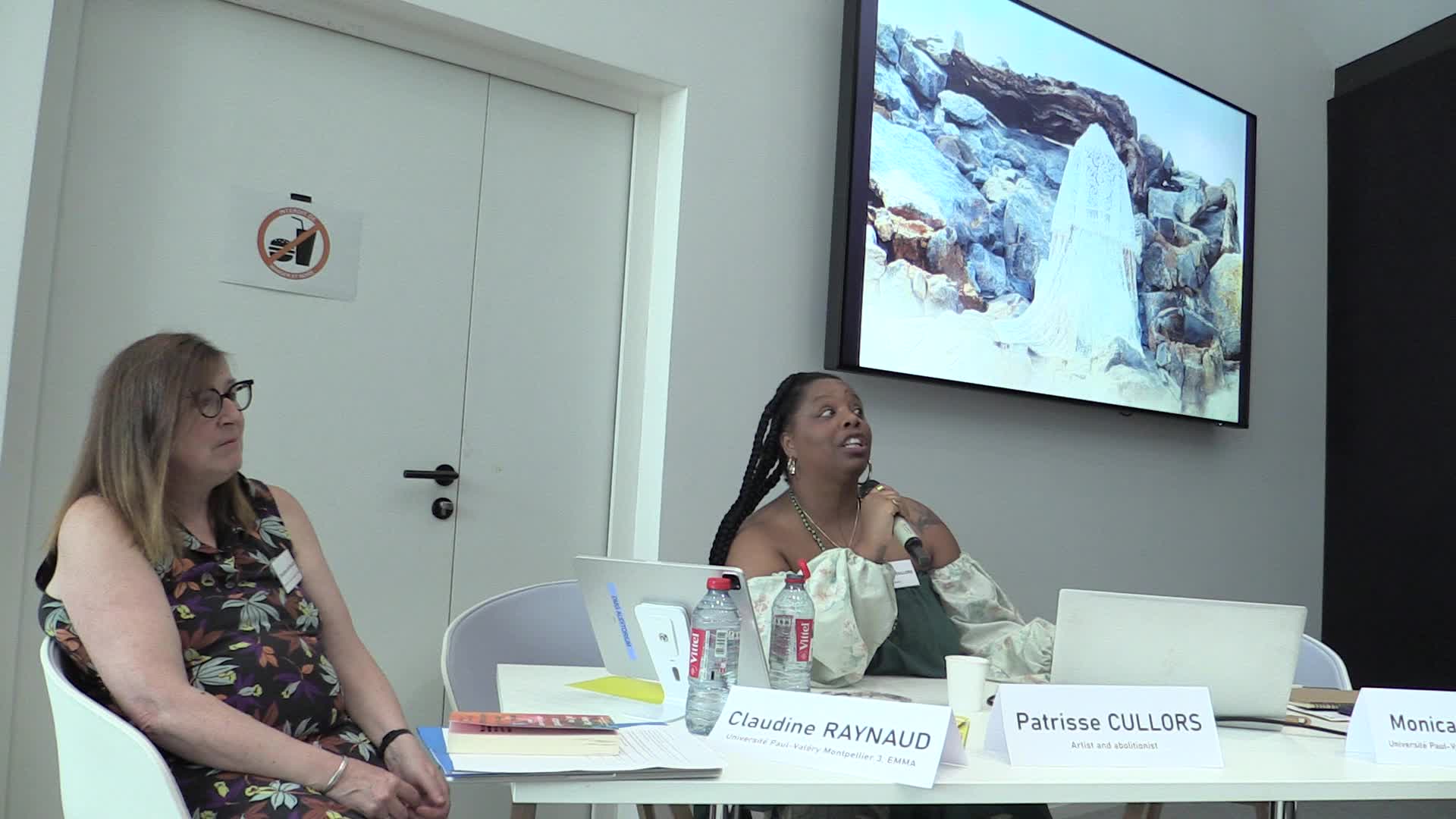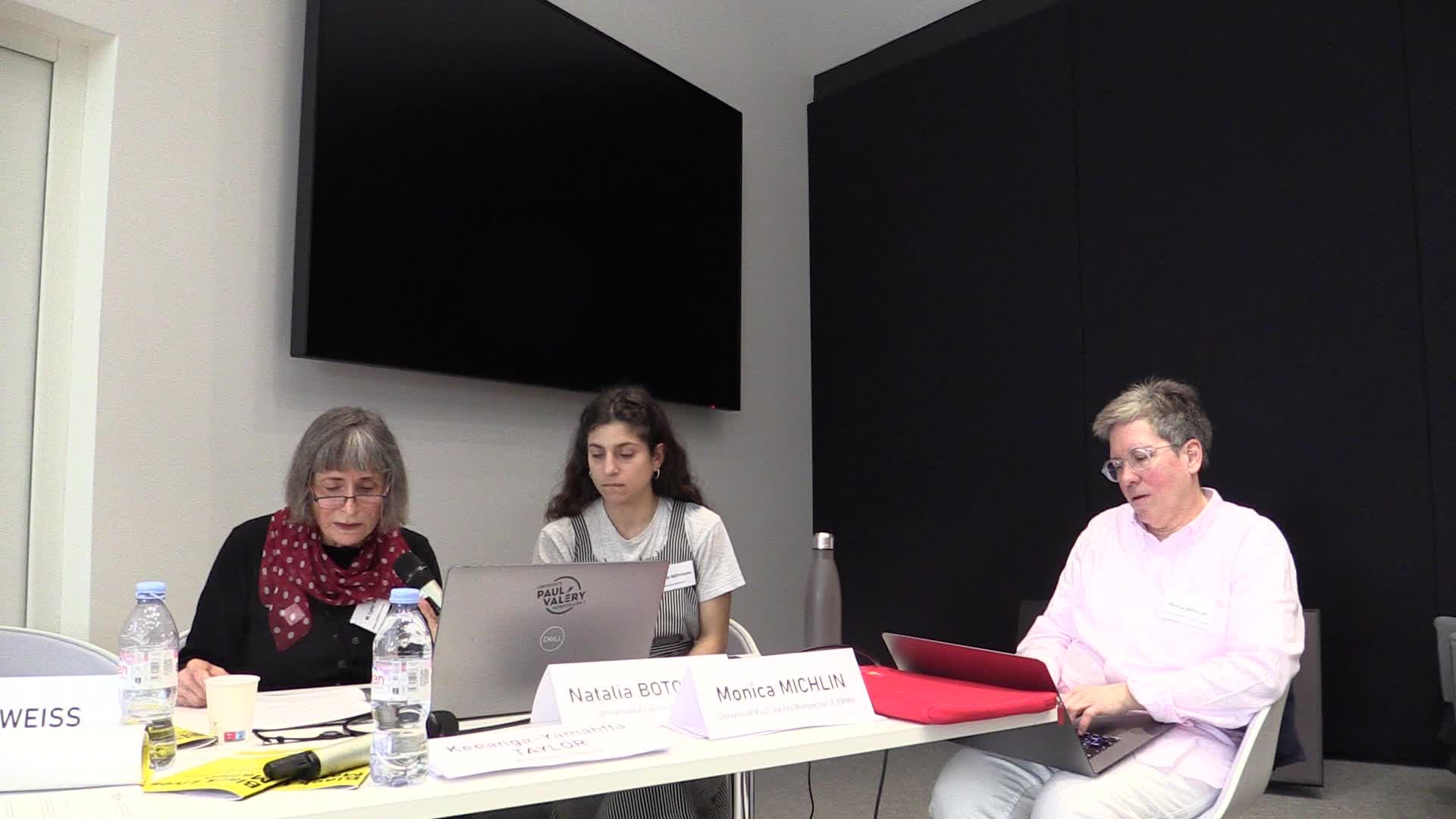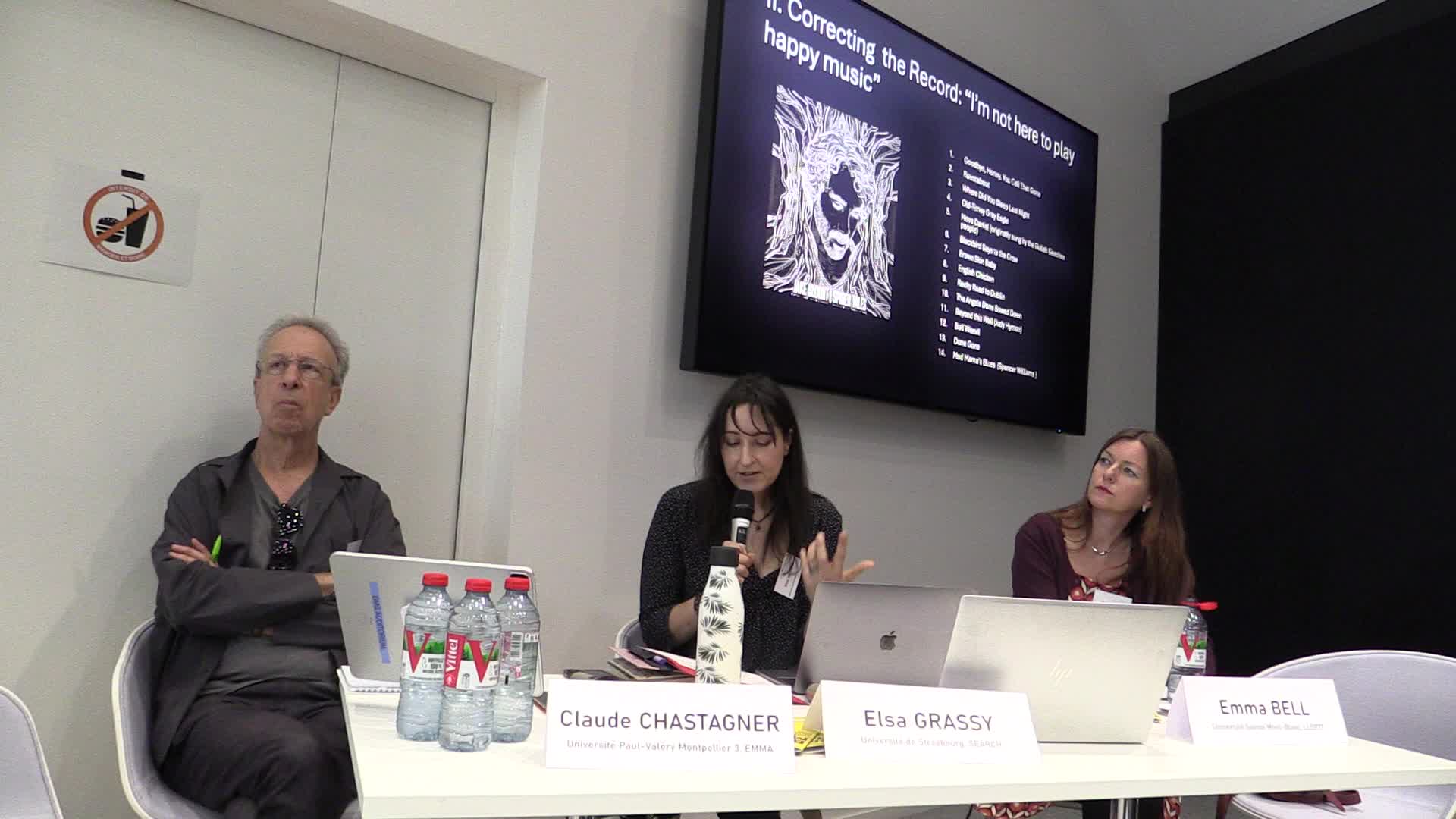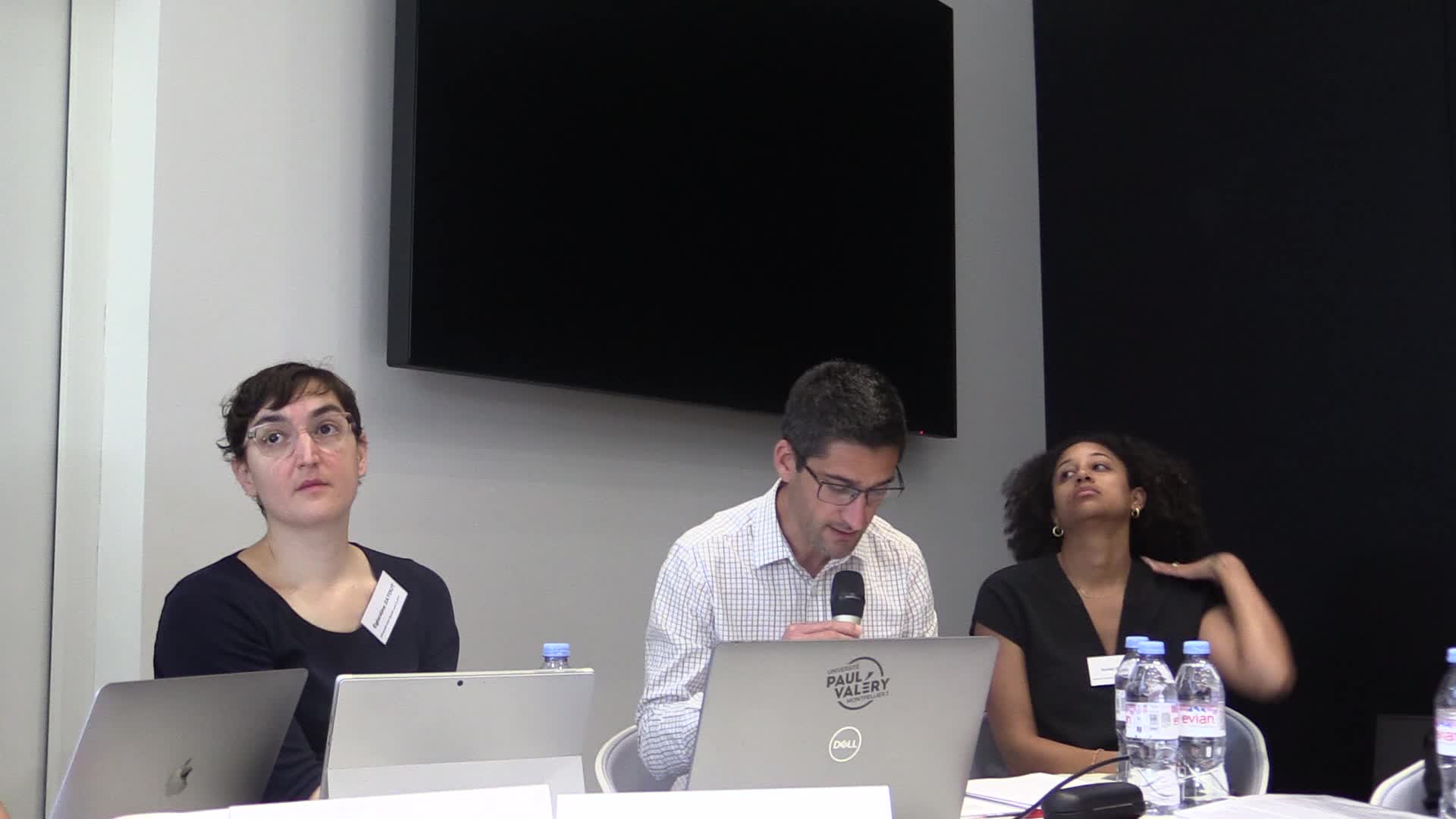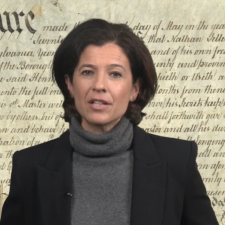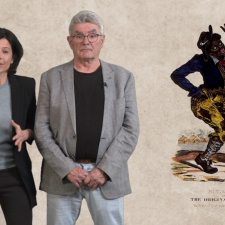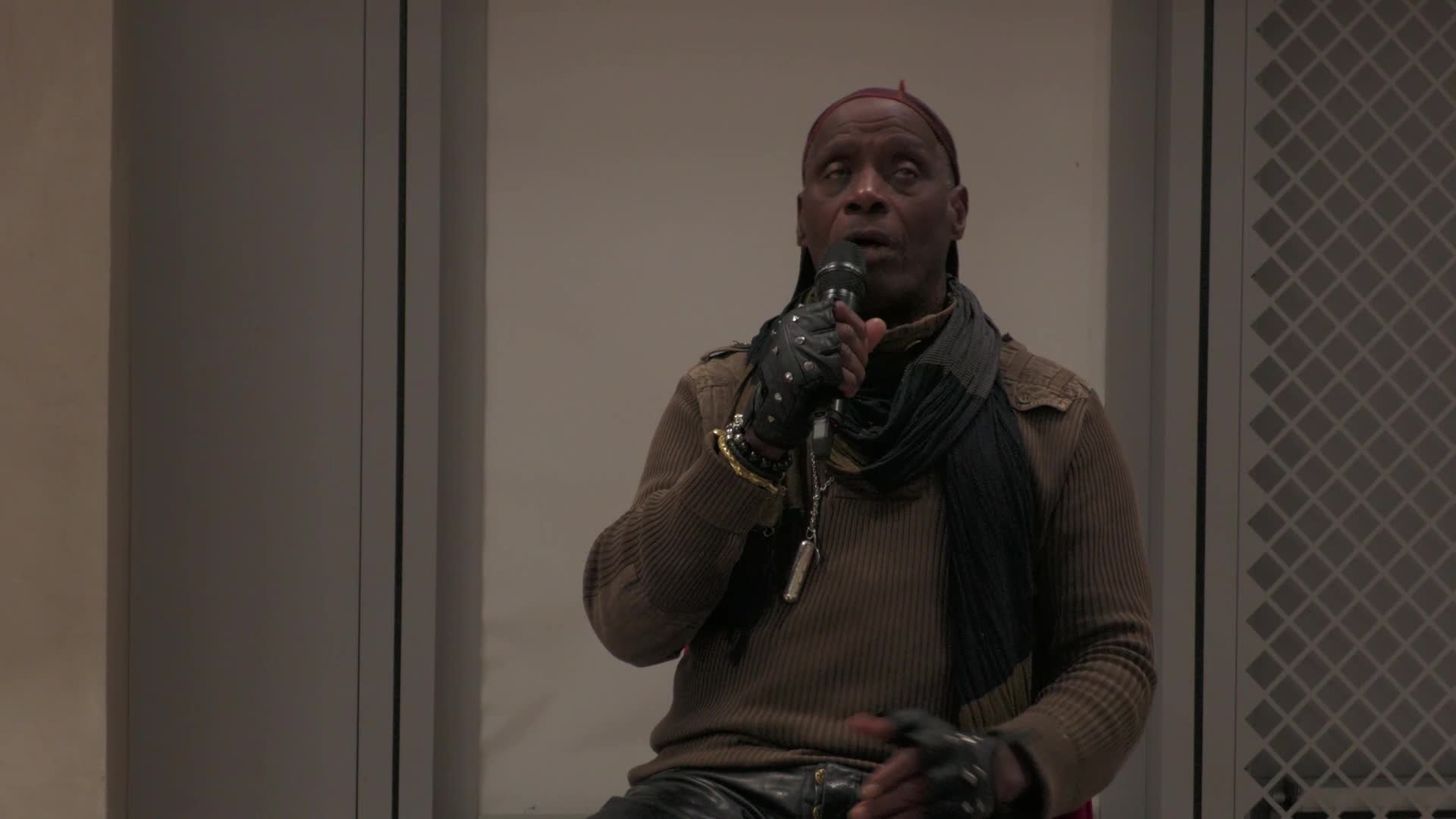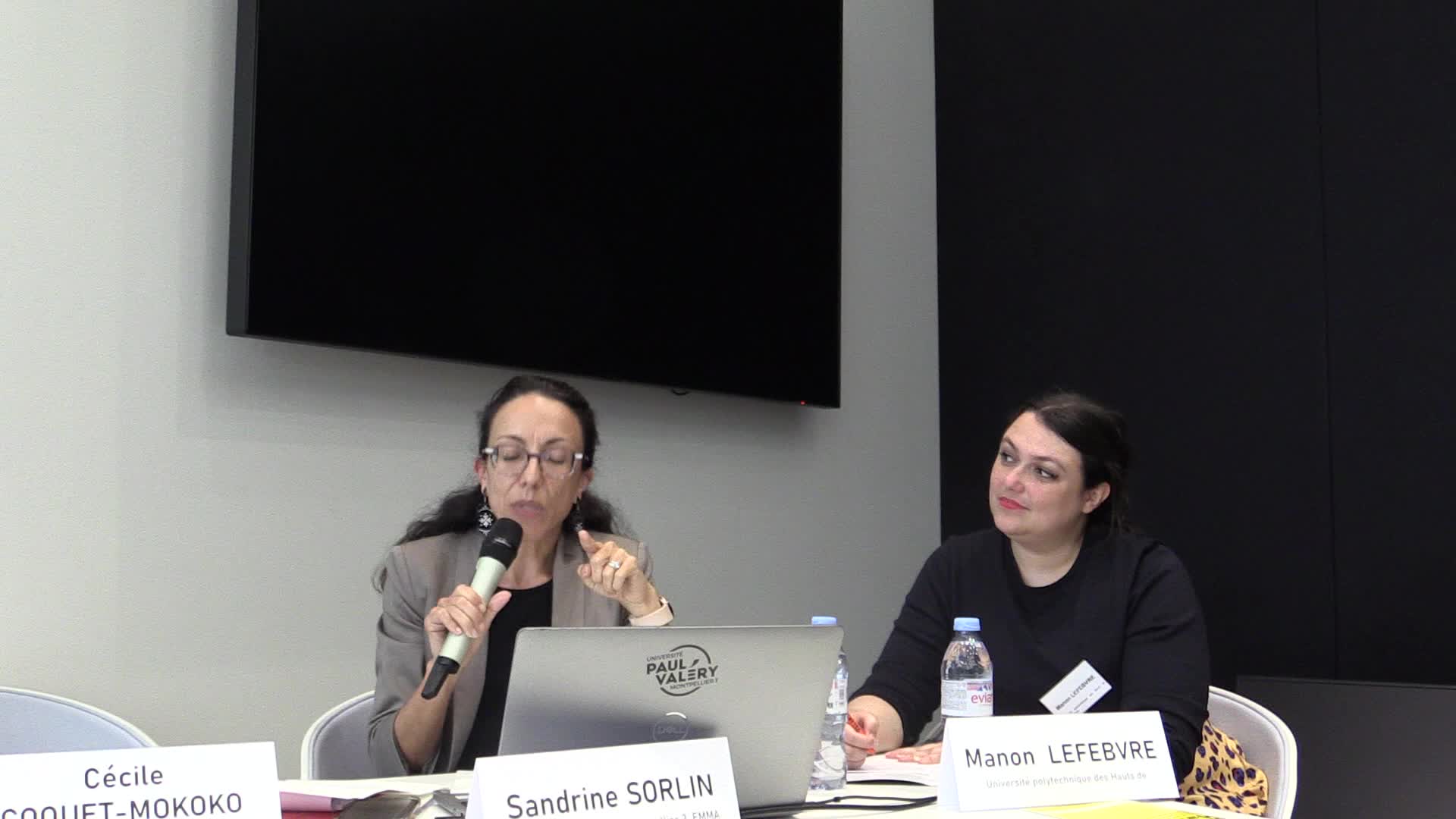Notice
"How prominent and permanent Black history exhibits in museums and galleries could positively affect public engagement with missing histories in Lancaster and Morecambe"- Kirsty Roberts (University of Central Lancashire)
- document 1 document 2 document 3
- niveau 1 niveau 2 niveau 3
Descriptif
My creative practice focuses on voids found in regional historical narratives created by reluctance, racism, and colonial practices within museology. I hope to deepen local knowledge and foster a sense of community through the discovery and display of an interconnectedness that may not initially have been perceived to exist between various demographics of the places where I focus my research.
Using local archives, collections and regional museums as case studies, I will research the Lancaster slave trade and slave-produced goods from 1680 to 1865 and Black entertainers in Morecambe from 1850 to 1950. Throughout, I will discuss any challenges or opportunities I encounter with historical documents that are embedded within a structure that has various accessibility issues.
I will showcase my findings by curating two in-person exhibitions in Morecambe and Lancaster, utilising current site-specific curatorial designs and possible interventions to long-term displays, to flesh out the gaps left by the exclusion of local Black histories. This will create opportunities to communicate with the public and amplify marginalised people, with the intention to enhance our collective understanding of social history and democratise heritage sites.
Dans la même collection
-
Stage reading with actors Lorry Hardel and Olivia Mabounga of extract from Aleshea Harris's play Is…
Stage reading with actors Lorry Hardel and Olivia Mabounga of extract from Aleshea Harris's play Is God Is
-
Stage reading with actor Olivia Mabounga of extract from Selina Thompson's play Salt.
Stage reading with actor Olivia Mabounga of extract from Selina Thompson's play Salt.
-
“Do #BlackLivesMatter to YouTube?: Auditing YouTube Search Results for Black Lives Matter Content A…
Avriel Epps (Harvard University) - “Do #BlackLivesMatter to YouTube?: Auditing YouTube Search Results for Black Lives Matter Content After George Floyd’s Murder”
-
Questions and Answers with Patrisse Cullors, artist, and BLM co-founder (Part I)
RAYNAUD Claudine
MICHLIN Monica
Questions and Answers with Patrisse Cullors, artist, and BLM co-founder (Part I)
-
Black Lives Matter: Political and artistic mobilization against systemic racism in the US and the U…
RAYNAUD Claudine
LENORMAND Marc
Black Lives Matter: Political and artistic mobilization against systemic racism in the US and the UK Conference (opening remarks)
-
4. “How to teach children about histories of Slavery and Colonialism: A Lancaster Response” – Geral…
Geraldine Onek (Co-Founder Lancaster Black History Group) - “How to teach children about histories of Slavery and Colonialism: A Lancaster Response” –
-
“Understanding the Backlash to Black Lives Matter” - Keeanga-Yamahtta Taylor (Princeton University)
Keeanga-Yamahtta Taylor (Princeton University): “Understanding the Backlash to Black Lives Matter”
-
Victor Ray (University of Iowa) - "Critical Race Theory and the Interest Divergence Dilemma"
"Critical Race Theory and the Interest Divergence Dilemma" - Victor Ray (University of Iowa)
-
Questions and Answers with Patrisse Cullors, artist, and BLM co-founder (Part III)
RAYNAUD Claudine
MICHLIN Monica
Questions and Answers with Patrisse Cullors, artist, and BLM co-founder (Part III)
-
“A Monumental Revision” - Lynn Weiss (College of William and Mary)
“A Monumental Revision” - Lynn Weiss (College of William and Mary)
-
“Jake Blount and The Folk of Black Souls – Curating, Correcting | “Genre Queering” the US Folk Musi…
GRASSY Elsa
“Jake Blount and The Folk of Black Souls – Curating, Correcting and “GenreQueering” the US Folk Music Canon in the Black Lives Matter Era”
-
"Black Lives Matter and African American political mobilization: the quest for legitimacy in the ou…
BENEDETTI Gregory
"Black Lives Matter and African American political mobilization: the quest for legitimacy in the outdoors and the outdoor industry"
Sur le même thème
-
La discrimination ethno-raciale dans la corporation des Avocat.es
ZRIBI Yasmine
La recherche porte sur la manière dont les rapports sociaux ethno-raciaux participent à la division sociale d’une corporation professionnelle, celle des avocats. Si la formation et la réussite à l
-
L'esclavage aux États-Unis
GENESIO Francesca
Histoire de l’esclavage aux États-Unis, des premières colonies américaines aux amendements de guerre en 1865, qui déclarèrent l’esclavage hors la loi, sans parvenir à instaurer une égalité autre que
-
Racisme, ségrégation et mouvements pour les droits civiques aux États-Unis
GENESIO Francesca
HUGUES Gérard
Un éclairage lumineux sur l’histoire complexe de la lutte pour les droits civiques aux Etats-Unis, de l’abolition de l’esclavage en 1865 à nos jours. Par Francesca Genesio et Gérard Hugues,
-
Ciné-dialogues Afrique - Deuxième séance - Camp de Thiaroye (1988) d’Ousmane Sembene et Thierno Fat…
BAKABA Sidiki S.
BRUZZONE Anna
Ciné-dialogues Afrique - Deuxième séance - Camp de Thiaroye (1988) d’Ousmane Sembene et Thierno Faty Sow
-
Stage reading with actors Lorry Hardel and Olivia Mabounga of extract from Aleshea Harris's play Is…
Stage reading with actors Lorry Hardel and Olivia Mabounga of extract from Aleshea Harris's play Is God Is
-
Stage reading with actor Olivia Mabounga of extract from Selina Thompson's play Salt.
Stage reading with actor Olivia Mabounga of extract from Selina Thompson's play Salt.
-
Questions and Answers with Patrisse Cullors, artist, and BLM co-founder (Part I)
RAYNAUD Claudine
MICHLIN Monica
Questions and Answers with Patrisse Cullors, artist, and BLM co-founder (Part I)
-
Questions and Answers with Patrisse Cullors, artist, and BLM co-founder (Part III)
RAYNAUD Claudine
MICHLIN Monica
Questions and Answers with Patrisse Cullors, artist, and BLM co-founder (Part III)
-
4. “How to teach children about histories of Slavery and Colonialism: A Lancaster Response” – Geral…
Geraldine Onek (Co-Founder Lancaster Black History Group) - “How to teach children about histories of Slavery and Colonialism: A Lancaster Response” –
-
“Do #BlackLivesMatter to YouTube?: Auditing YouTube Search Results for Black Lives Matter Content A…
Avriel Epps (Harvard University) - “Do #BlackLivesMatter to YouTube?: Auditing YouTube Search Results for Black Lives Matter Content After George Floyd’s Murder”
-
“A Monumental Revision” - Lynn Weiss (College of William and Mary)
“A Monumental Revision” - Lynn Weiss (College of William and Mary)
-
“Focus versus Denial: A pragma-linguistic analysis of the Black Lives Matter and All Lives Matter s…
SORLIN Sandrine
“Focus versus Denial: A pragma-linguistic analysis of the Black Lives Matter and All Lives Matter slogans”


